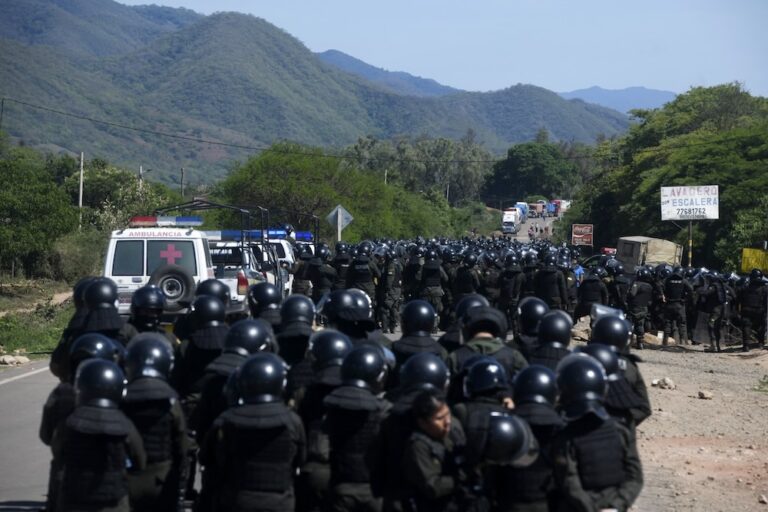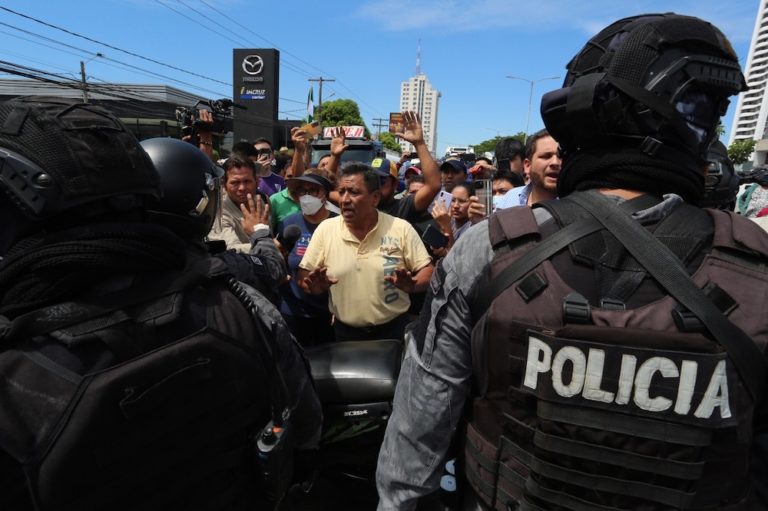(IPYS/IFEX) – There were two significant developments regarding legal threats to press freedom in the third week of March 2008. A national press organisation protested to the OAS about a problematic article in the new Constitution, and widespread opposition to a problematic measure by the broadcasting regulator led to the measure’s revocation. On 15 March […]
(IPYS/IFEX) – There were two significant developments regarding legal threats to press freedom in the third week of March 2008. A national press organisation protested to the OAS about a problematic article in the new Constitution, and widespread opposition to a problematic measure by the broadcasting regulator led to the measure’s revocation.
On 15 March 2008, the National Press Association (Asociación Nacional de la Prensa, ANP) submitted a complaint to the Inter-American Commission on Human Rights of the Organisation of American States (OAS), because it believes the new Constitution, promoted by President Evo Morales, limits freedom of expression. The complaint makes specific reference to Article 108, which stipulates that “information and opinions emitted through the media must respect truthfulness and responsibility.”
According to the ANP, those principles could be given legal status and be used to sue any citizen when his or her opinion is considered to be “false” or “irresponsible”.
The ANP turned to the OAS after receiving no reply from the Constitutional Assembly’s president, Silvia Lazarte, who was sent a letter on 29 January requesting that these problematic requirements be eliminated from the Constitution.
In a separate development, on 20 March, the Telecommunications Superintendency (Superintendencia de Telecomunicaciones, SITTEL) was forced to repeal its 14 March decision, which announced the establishment of sanctions against those television and radio stations that broadcast information which, “even if true, can harm or alarm the population because of the way or the moment in which they were broadcast.”
SITTEL’s resolution, which was sent to more than 1000 stations, warned that offenders would be sanctioned with suspensions of between 50 and 125 days, based on two legislative decrees, dating from 1971 and 1996 respectively, which stipulate punishments for those media outlets that broadcast messages considered damaging to public morale and potentially corruptive of minors.
SITTEL revoked the ruling after press organizations, politicians and even government spokespeople, who believed the measure to be an attempt to restrict press freedom, protested.
Updates alerts on the new Constitution: http://ifex.org/en/content/view/full/90692/


